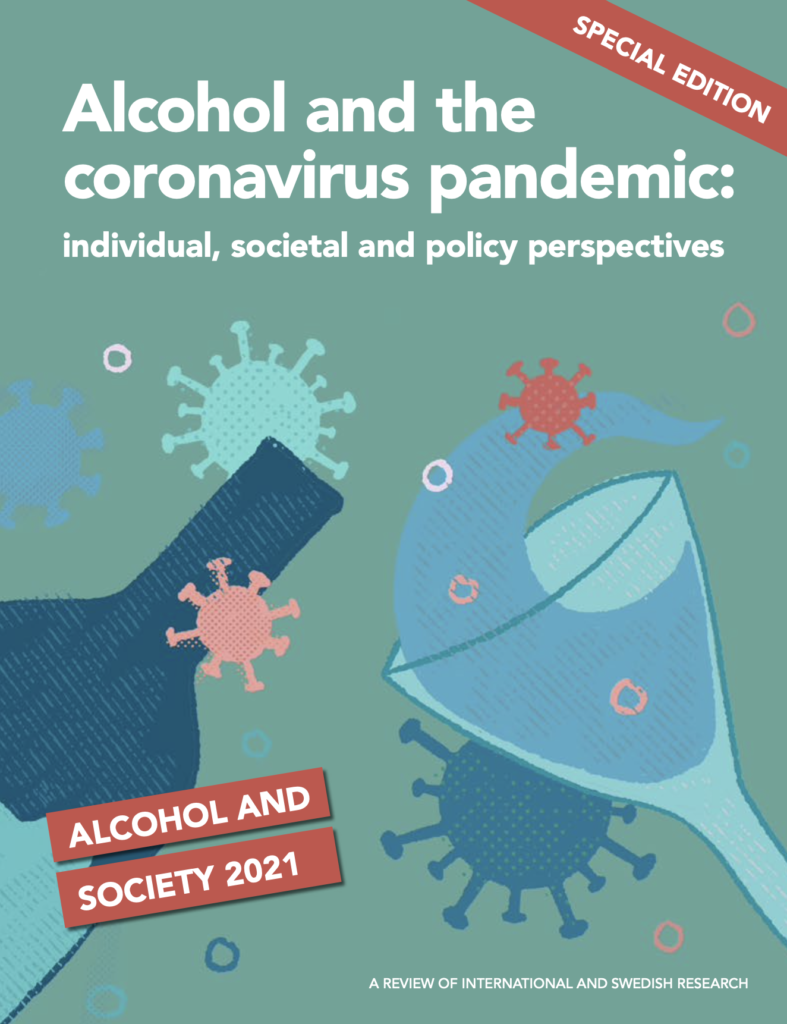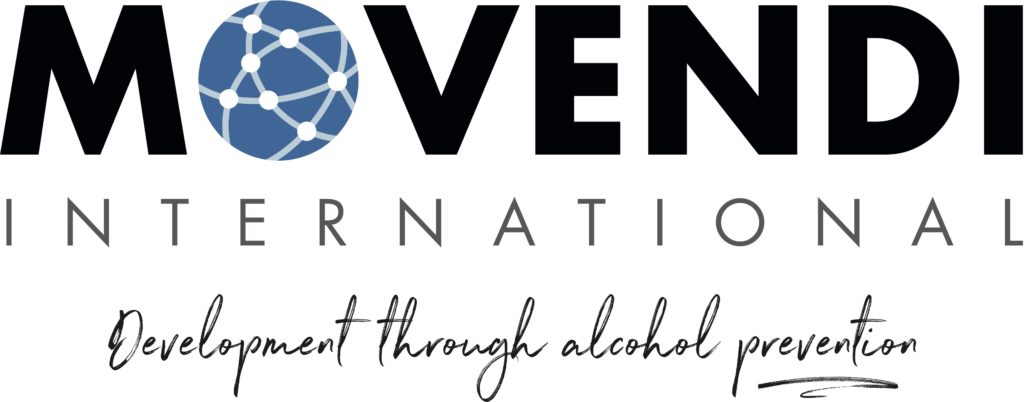Ground-Breaking New Report Shows Lethal Interaction Between Alcohol and Coronavirus Pandemic
Stockholm, Sweden, January 26, 2021 – Alcohol fuels the coronavirus pandemic in different ways, the alcohol industry exploits the current public health crisis and many governments around the world have largely failed to protect their people by using evidence-based alcohol policy solutions as part of the response to COVID-19 – according to a brand new research report.
The groundbreaking analysis provides for the first time a comprehensive picture of the individual, societal and policy dimensions of the interaction between alcohol and the coronavirus crisis.
The coronavirus crisis has brought into sharp focus the health, economic and social burden that alcohol places on our societies,” says Kristina Sperkova, International President of Movendi International.
We see that alcohol harm is draining scarce resources from our communities and that alcohol burdens the healthcare system heavily. Unfortunately, as the report shows, not enough governments have opened their eyes – yet – to that reality.”
Kristina Sperkova, International President, Movendi International
The report has been written by a group of renowned international experts lead by Harold Holder. They examined data, news media reporting and the first scientific studies of this rapidly evolving situation to compile a comprehensive analysis of what we know so far about alcohol’s contribution to the pandemic, how the pandemic might drive alcohol harm, the effects of alcohol policy (in)action and the activities of the alcohol industry to capitalize on the current public health crisis.
Alcohol is a key amplifyer of the pandemic – in different ways
The report details how alcohol fuels the pandemic on individual and societal levels. Alcohol is a risk factor for spreading infection and increasing risks of complications while also causing other medical and social problems that burden healthcare and other services.
Physiological impacts of alcohol weaken immune system functioning and affect a range of organs, thereby increasing the risk of viral infection, severity, recovery and long-term consequences.
Alcohol-centric social contexts have played a crucial role in ‘super-spreader’ events, amplifying the coronavirus outbreak early, and later driving the resurgence after initial control.
Alcohol use has played a crucial role in the transmission and propagation of the coronavirus pandemic with major social and economic implications.
Interactions between the consumption and/ or sale of alcohol and COVID-19 clearly represent a major public health challenge.
Alcohol’s heavy burden on emergency services and the healthcare system
The report details how alcohol harm impedes effective responses to the pandemic by healthcare systems pushed to the brink.
Alcohol contributes to over 400 varieties of illness and injury. On average, alcohol contributes to 20% of injuries and 11.5% of all non-injury emergency department presentations.
Clearly, alcohol harm is placing a considerable strain on scarce and overextended healthcare resources. This alcohol burden should be another key consideration in the response to the pandemic,” urges Ms Sperkova.
But not all countries have taken decisive action with the help of evidence-based alcohol policy solutions to swiftly reduce the alcohol burden during the pandemic.
Kristina Sperkova, International President, Movendi International
The researchers show that declaring alcohol ‘essential’ – as some jurisdictions have done – has fueled greater numbers of other alcohol-related illnesses and injuries.
But countries that implemented evidence-based alcohol policy measures saw specific reductions in emergency room and hospital admissions over and above the effects of lockdowns.
Big Alcohol exploits crisis to further decade-old deregulation agenda
Across the globe, the alcohol industry has worked aggressively during the COVID-19 crisis to shape public debate around alcohol’s role in society and influence policy towards wholesale deregulation of its market.
Analyzing cases from around the world, the research team finds that alcohol industry lobbying efforts have sought to undo every element of effective alcohol policy known to reduce alcohol’s health and social burden, e.g. by seeking to reduce taxes, make alcohol widely available and remove restrictions on marketing.
We are deeply concerned by the aggressive alcohol industry activities we are seeing in our communities,” says Ms Sperkova.
The onslaught of alcohol advertising promoting alcohol as coping tool during the pandemic fuels alcohol harm; aggressive lobbying to weaken and undermine existing alcohol policy measures hurts everyone except of Big Alcohol’s profits; and the relentless push to make alcohol more widely and easily available without protections for minors and people who have problems is deeply unethical.”
Kristina Sperkova, International President, Movendi International
The report cautions that major regulatory changes weakening existing alcohol policies or increasing alcohol availability and affordability will be difficult to reverse and are therefore likely to persist after the pandemic.
Key recommendations to address alcohol’s role in the pandemic
Solutions are available for governments to reduce the alcohol burden and mitigate the pandemic through evidence-based alcohol policy measures. The researchers make the following recommendations:
- Maintain and improve alcohol policy measures;
- Limit alcohol availability and affordability and make use of evidence-based alcohol pricing policies;
- Ensure effective public health messaging on alcohol and COVID-19 from health authorities;
- Make clinical and treatment provisions for people experiencing all types of alcohol-related problems; and
- Increase access to mental health services, including online services.
We want to raise the recognition that alcohol awareness and policy action are important elements in the efforts to overcome the coronavirus pandemic,” says Johnny Mostacero, President of IOGT-NTO, the Swedish social movement for alcohol prevention and control.
Therefore, public health authorities should issue public health advice on alcohol, along the lines of the guidance from the World Health Organization.“
Johnny Mostacero, President, IOGT-NTO
Notes to the editors
More about the research report
The report “Alcohol and the coronavirus pandemic: individual, societal and policy perspectives” is the latest research publication in the series “Alcohol and Society” that has been published since 2013 to annually collate the latest evidence about alcohol’s harm on people and society.
The authors of the report are Sven Andreasson, Tanya Chikritzhs, Frida Dangardt, Harold Holder, Timothy Naimi, Adam Sherk, and Tim Stockwell.
The report is published by a partnership of civil society organizations including Movendi International, IOGT-NTO, The Swedish Society of Nursing, The Swedish Association of General Practice, The Swedish Society of Addiction Medicine, SIGHT, The Center for Education and Research on Risk, Abuse and Addiction (CERA), and the Foundation Responsibility for the Future (SAFF).
Suggested citation
Andreasson S, Chikritzhs T, Dangardt F, Holder H, Naimi T, Sherk A, Stockwell T. (2021). Alcohol and Society 2021: Alcohol and the coronavirus pandemic: individual, societal and policy perspectives. Stockholm: Swedish Society of Nursing, SFAM, SAFF, CERA, The Swedish Society of Addiction Medicine, SIGHT, Movendi International & IOGT-NTO.
About Movendi International
With 137 Member Organization from 54 countries, Movendi International is the largest independent global movement for development through alcohol prevention. We unite, strengthen and empower civil society to tackle alcohol as serious obstacle to development on personal, community, societal and global level.


